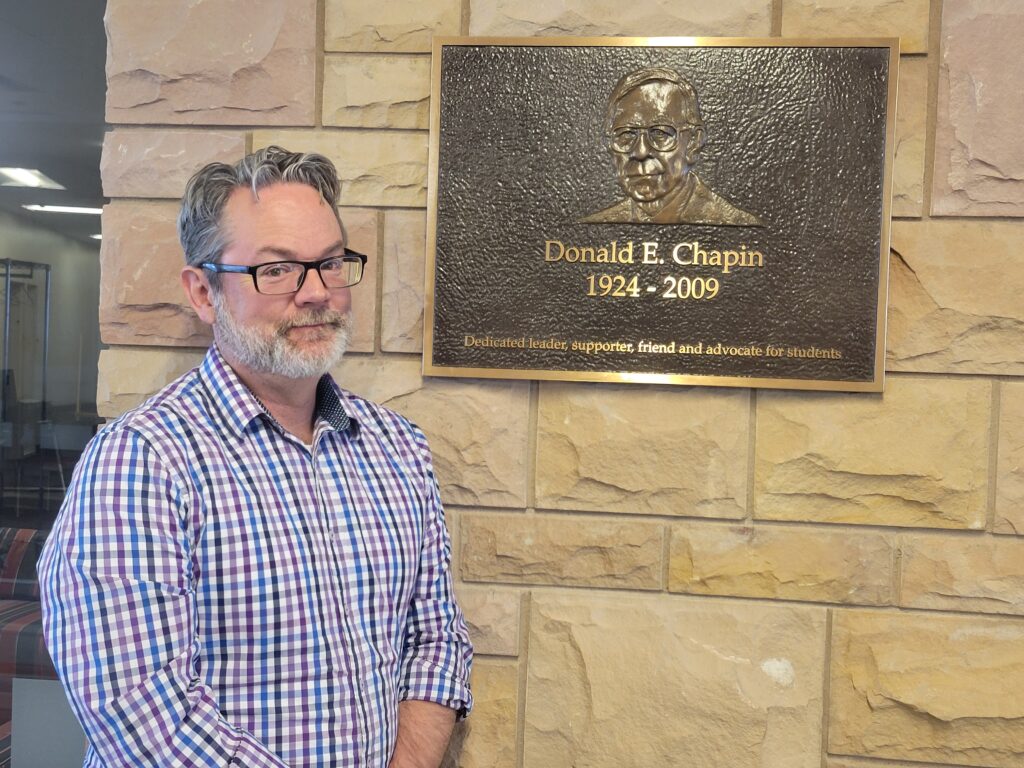Lairen Brush
Chinook Writer
Keenan Morgan & Tyler Cooper
Contributors
In 2019, the state of Wyoming authorized community colleges within the state to offer four-year degrees, specifically a Bachelor of Applied Science degree. This authorization applied to Casper College, yet the school still does not have a four-year degree offering. For students attending college in Casper, the only options for attaining a four-year degree are attending the University of Wyoming at Casper (UW-C) or leaving Casper entirely.
“If they’re going (to college) to get the in-class or humanities, they got to go down to Laramie or CSU or some other place,” David Zoby, an English professor at Casper College said.
According to Nathan Blank, a political science instructor at Casper College, Wyoming students receive greater educational investment in the K-12 system than the average American. Wyoming makes greater investments in education than many surrounding states. For K-12 students, music programs, after-school activities, and innovative technology are seen throughout schools to enrich learning. These in-state investments are different when in comparison to higher education. While high schools get iPads and Chromebooks, Casper College gets an empty UW-C building.
Many are worried about the rate at which people are leaving Wyoming to attend college and find work. According to the Economically Needed Diversity Options for Wyoming Initiative, 60% of those in the 18-24 year-old range are leaving Wyoming.
“It’s all about providing opportunities for students — preparing a workforce that’s educated in useful fields. That will help grow our economy,” Blank said, “And hopefully allow us to retain that investment.”
A study from the Brookings Institute found that the quality of colleges greatly affects the size of these benefits. According to the study, high-value-added four-year colleges contribute $265,000 more per student to local economies. This contribution is less for high-value-added two-year colleges at $184,000.
“There’s examples all over the United States of these places where a university or a college stimulates the economy, gets people to move there, and gives students a place to stay and practice what they learned,” Zoby said.
As a small town compared to the rest of the United States, Casper could stand to benefit from the economics brought forth by more four-year degree offerings, whether through UW-C or Casper College directly. In 2019, Axios studied the economic benefits of having four-year colleges in small towns. The study found that such towns as Boulder, Colo., Ann Arbor, Mich., South Bend, Ind., and other small towns benefited greatly from a four-year college.
However, there has been reluctance to make a second four-year institution in Wyoming. For one, there are the costs to convert one to another.
Converting Casper College does not involve just doubling the years. According to Brent Pickett, the dean of UW-C, making CC a four-year institution involves a massive shift with the hiring of new professors and making sure there are enough classrooms and students.
Two years ago, the UW-C phased out the English program due to insufficient students.
“But in the end, we just didn’t have enough students in English as a major to make it viable at UW-Casper,” Pickett said. “So we had to pull the plug on (the program).”

Brent Pickett, the Dean of the University of Wyoming at Casper, is standing with a Plaque of Donald E. Chapin, an attorney that worked on both Casper College and UW Board of Trustees.
Population is another important factor. Wyoming has a total of about 500,000 residents. Stretching resources may not seem worth it to some citizens, especially with other states as an example.
“And I hear that Montana has three four-year institutions, and all three feel starved,” Pickett said.
If Casper College became a four-year institution, the degrees offered have to be viable to the state’s job market. Otherwise, the investment would not be worth it to Wyoming’s economy or give an incentive for people to stay.
Another argument in support of allowing more four-year degree offerings to students in Casper is that the University of Wyoming has a monopoly on higher education due to its dominance over the state’s four-year offerings.
“I can’t get past how monopolies are never good. Having more choices, keeping kids in the state, providing opportunities to keep them in the state, to me, are really good objectives, and so I can’t shake that,” Blank said.

